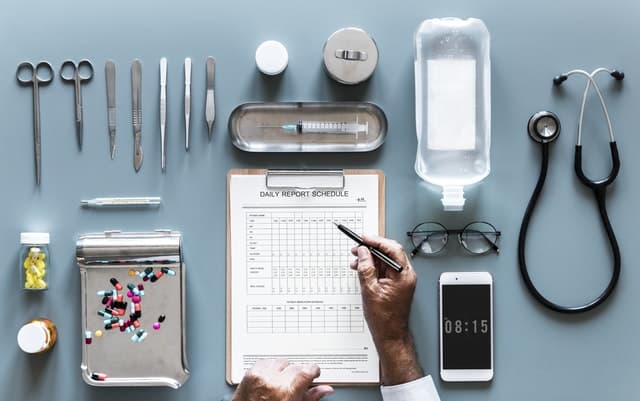IOT market penetration in the healthcare care sector is on an upward trajectory. Its applications include medication adherence, smart sensors and remote monitoring. Market research has disclosed that by the year 2020, IOT in smart healthcare will be at $117B.
Here are the statistics about IOT in healthcare by a hospital review from Becker:
- 60% of organizations in the healthcare sector have incorporated IOT devices in their operations.
- IOT is mostly used in the healthcare organizations for monitoring patients (64%) followed closely by use in energy meters (56%).
- 80% of the respondents mentioned that the main advantage of IOT was increased innovation.
- 89% of healthcare establishments have been victims of IOT-affiliated security breach.
- 73% of the healthcare establishments use internet of things for monitoring as well as maintenance.
- It is estimated that 87% of healthcare establishments will have incorporated IOT technology by the year 2019.
- Respondents identified workforce productivity (57%) and cost saving (57%) as the main future benefits on internet of things in the future.
Application of IOT in Healthcare.
OpenAPS
This means open artificial pancreas system. Thanks to OpenAPS, diabetes patients are able to effectively and efficiently control and monitor their insulin levels.
Activity Trackers
Developed by Memorial Sloan Kettering Cancer Center (MSK) and Medidata, activity trackers have significantly reduced the cost of monitoring. These devices are reliable in terms of monitoring the long-term health of cancer patients. The patients are required to wear these trackers which relay information on their hunger levels, exhaustion levels and activities before treatment is administered to them.
Connected inhalers
Novartis and Propeller in conjunction with Qualcomm, are developing connected inhalers for disruptive pulmonary disease patients. The connected inhalers will be attached to a mobile app and will send reminders to patients like when to take medication. These inhalers are also expected to monitor the progress of the patients.
Connected Lenses
Alcon is developing the smart lenses technology which will see non-invasive devices attached to contact lenses. It is expected that the lenses will be able to perform a number of functions such as assisting presbyopia patients. The lenses will also help diabetic patients measure their glucose levels through their tears.
Coagulation Testers
A coagulation system that is Bluetooth enabled was launched by Roche in 2016. The coagulation testers allow patients to monitor the speed at which their blood clots. This helps the patients stay close to care centers thus reducing the risk of bleeding or developing a stroke.
Challenges of IOT in Healthcare.
IOT faces a number of security challenges. The following are ways to address these challenges:
Authentication
To ensure the safety of patient’s records, hospitals should install a 2FA (two-factor authentication system). This will restrict access to classified records.
Encryption
Stored data or data in transit should be encrypted to reduce data breaches.
Secure Boot
A secure boot ensures that the configurations of the devices are not tampered with.
Data Dictionary
This makes the inventory process of devices as well as applications easy. Retrieving data information will be easier and faster.
Education and Training.
IOT technology is constantly evolving. It is important to ensure hospital staff are adequately trained on the risks and challenges that come with new technologies and ways of mitigating them.




